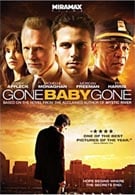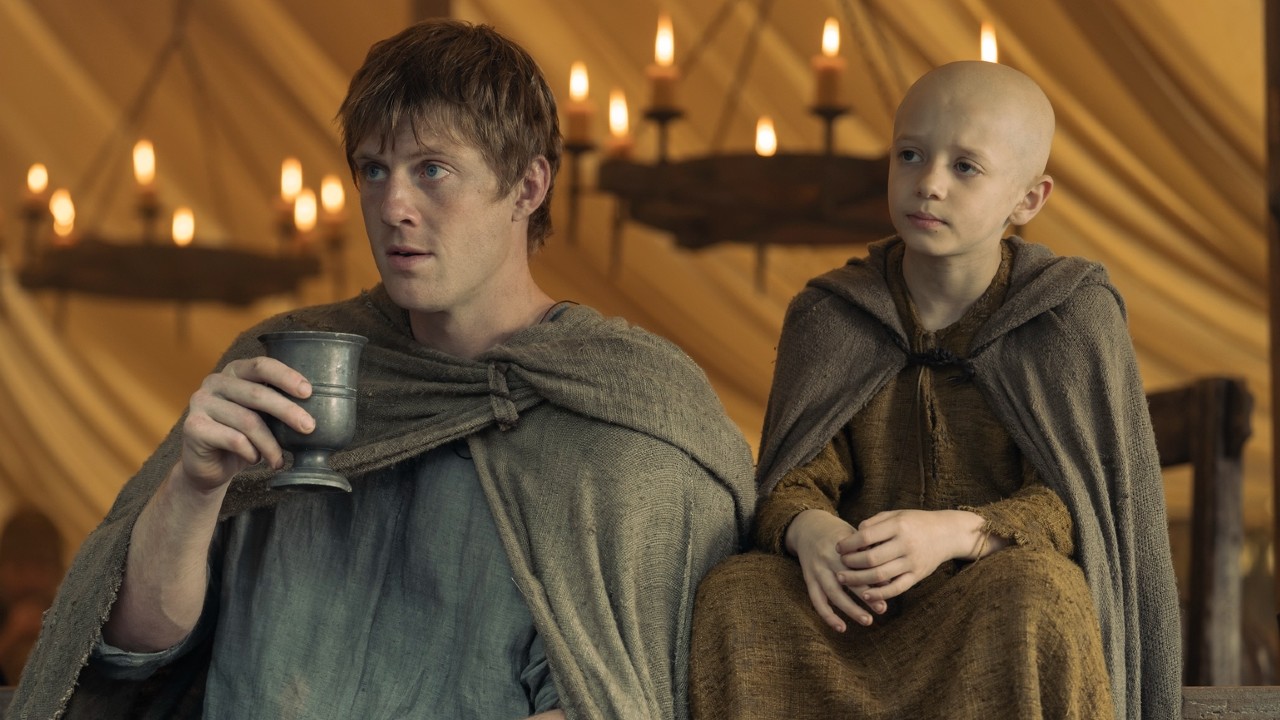“I always believed it was the things you don’t choose that make you who you are…your city…your neighborhood…your family.” Those are the first words you’ll hear in the film, spoken by main character Patrick Kenzie. It’s an innocuous enough opening line, the kind of thing that a writer might toss out to draw you in with false intellectual credibility. In Gone, Baby, Gone, however, the simple statement comes back to haunt the characters in unexpected ways, facing Kenzie with questions that the audience is left to grapple with long after the credits roll. For his directorial debut Ben Affleck tackled something most freshman directors would find more than a little intimidating. Apart from a script that needs a steady cinematic stroyteller and complicated characters that demand an experienced cast, it undertakes the kinds of unpleasant topics that make movies hits with critics but failures at the box office. Fortunately for Affleck, he has a gift for storytelling, strong ties to the best Hollywood has to offer, and the sheer nerve needed to take on tricky subjects that, if mishandled, can ruin a film.
Kenzie (Casey Affleck) and his partner Angie Genarro (Michelle Monaghan) pay the rent hunting down deadbeat parents and people who skip out on car payments. Their familiarity with the neighborhood where they’ve lived all their lives makes them good at their job. It’s that same advantage that brings Bea (Amy Madigan) and Lionel McCready (Titus Welliver) to Kenzie’s door to help them find their kidnapped niece.
On the surface the film presents itself as your run-of-the-mill thriller, an average story made more interesting by gripping performances and a gritty script that would make David Mamet blush. As the movie feels like it’s coming to a close, it leaves you with a set of only mildly compelling thoughts on child kidnapping and mild insight into how the case has affected Kenzie and Gennaro. And then the entire story completely catches fire and explodes. Exploding isn’t enough. The story procedes to implode, explode again and unravel into something far more satisfying, challenging and disturbing than a run-of-the-mill thriller. Unexpected twists are offered, but that’s only the beginning. With every twist comes a new set of increasingly difficult questions – surprising questions – the kinds that don’t have an easy answer. Gone Baby Gone won’t disappoint, but don’t look to it for a happy ending and don’t expect to be able to walk away with a settled mind.
The story, based on the Dennis Lehane’s novel, was adapted by none other than Academy Award winning writer Ben Affleck himself, along with writing partner Aaron Stockard. If you’re a fan of the books you might be disconcerted by the licenses they take with the characters, but bear in mind they worked closely with Lehane to produce the script. Turning a good book into a good movie is not an easy thing, even with the author’s input, but in the end Affleck and Stockard make it work. Their adaptation is faithful to the novel in spirit, if not completely faithful in word.
At the center of the movie is an amazing cast. Casey Affleck gives the kind of performance that propels young actors previously relegated to character roles to opportunities for leading character greatness. Surrounded by unrelenting supporting performances from Ed Harris, Morgan Freeman, Amy Madigan, John Ashton, and Amy Ryan (who earned an Oscar nom for her turn in the film), Affleck and Madigan hold their own and shine with equally compelling work.
If you can stomach it, Gone Baby Gone lends itself to a more revealing experience when you watch for a second time. You won’t find any startling revelations you missed the first time around like you would expect in most shock-ending thrillers. Instead, seeing the movie with full disclosure about all of the characters opens up a whole new world of insight and adds new meanings to previously insignificant moments. It’s the icing on the cake for an already amazing film. There’s no fluff in Gone Baby Gone so it’s only fitting that all the fat has been trimmed from the DVD. No time is wasted on theatrical trailers, actor bios or the other miscellaneous business popular in so many packages. Every bonus feature matters and offers something to try and improve your experience of the film.
Two brief featurettes cover the casting of the movie and a behind-the-scenes look with first-time director Affleck. The movie’s cast is of particular interest since Affleck filmed in Dorchester, Massachusetts and used natives of the town for most of the extras and background cast. The behind-the-scenes look answers a lot of the fringe questions that might be nagging at the back of your mind, like what it was like for Ben to direct his younger brother. The pair of features won’t take fifteen minutes to watch, but they don’t waste your time.
Your Daily Blend of Entertainment News
The deleted scenes are surprisingly lengthy, due mainly to the fact that they include an extended opening and extended ending. I liked the extended versions better than what Affleck left in the movie, but with their added emphasis on Kenzie’s philosophies of life and perhaps unnecessary exploration of the background between Kenzie and Genarro, I can understand why they were pared down. At nearly two hours and four jarring acts, the movie already feels a little long, so the shortened bookends might not have been a bad thing. Directors, especially new ones, have a hard time dropping their hard work on the cutting room floor. Kudos to Affleck for not being afraid to hack and slash a little for the greater good. He was gracious enough to give some commentary with each of the deleted scenes. He was also gracious to give you the option to turn it off in case you don’t want to hear him explain why he left them out.
Finally, Affleck and Stockard offer a commentary. Ben spends a little too much time commenting on silly trivia like how they had to special effects in Michelle Monaghan’s bangs or work around the fact that they couldn’t shave Titus Welliver’s handlebar moustache. He also offers additional exposition, explanation and justification that isn’t really necessary. But, from moment to moment he slips in some insights into his process or interesting background on the filmmaking. It’s worth a listen if commentaries are your thing, but be warned, Affleck is a much better at writing and directing movies than discussing them.
This isn’t the kind of movie that you’d generally come back and watch on a regular basis, not because it isn’t good, but because it’s rough on the mind. You might find that once or twice through is enough for you. On the other hand, it could be something you just can’t live without in your collection, the kind of the movie you want to have on hand to loan out to interested friends. Either way, give it a rent before you buy. Buyers remorse is the last thing you’ll want weighing on your mind at the end.

